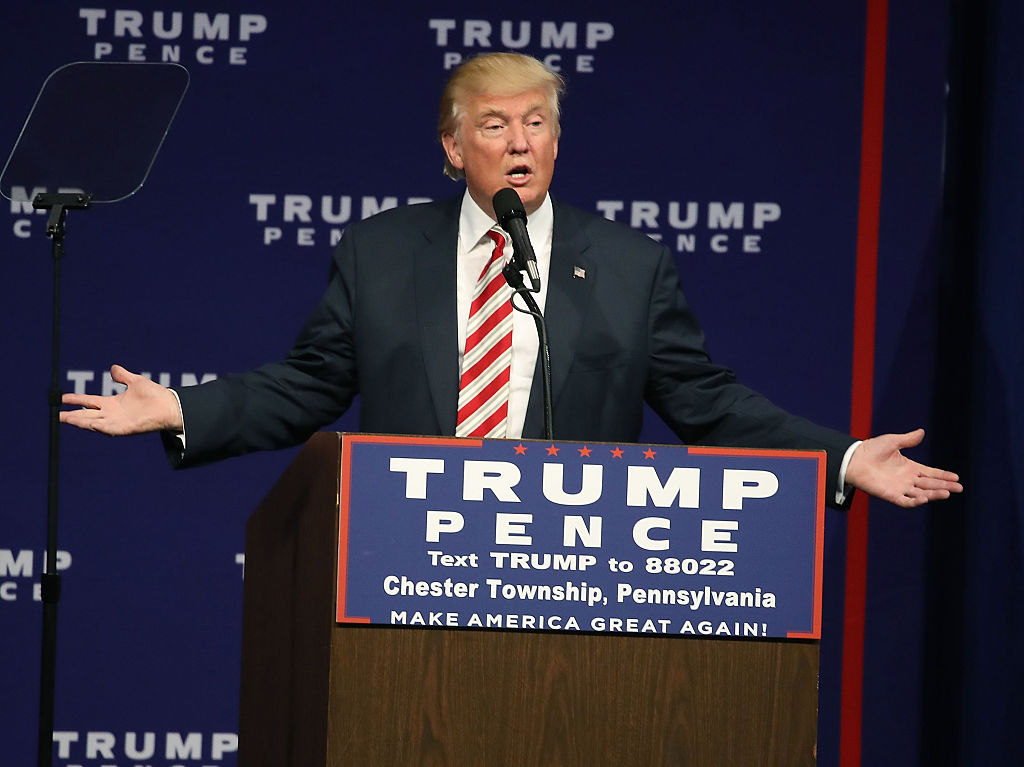
Sept. 26 is the first presidential debate of the general election, and I feel a sense of déjà vu. Between the Republicans and the Democrats, we’ve already seen 21 primary debates. One thing remains constant: where women candidates go, so go the sexist remarks, whether they are from the moderators, social media critics or the opposing candidate.
In 20-plus years of supporting and advising women candidates, I have never seen a man with such a “history of flippant misogyny” and a “‘big liar’ technique” prepare to share the stage with a woman who has been breaking glass ceilings her entire life.
There’s always a chance that Donald Trump will surprise us and not say anything sexist (or racist, or homophobic, or xenophobic), and I sincerely hope that’s the case. Sexist rhetoric has a cooling effect, reinforcing gender stereotypes and playing into the tired trope of how women should look and sound. What message does gendered rhetoric send to viewers and voters? Nothing good.
Relying on policy instead of put-downs would be a big departure from Trump’s usual modus operandi when dealing with powerful women like Hillary Clinton. Here’s what I hope we don’t see in the debate.
1. Comments about Clinton’s looks.
Or her voice. Or her clothing. And definitely don’t tell her she should smile.
Also, just because a woman speaks passionately about something does not mean she’s yelling. So don’t comment on the volume of her voice.
2. Phrases that are code for “not a man.”
Examples of what not to say include: “I just don’t think she has a presidential look;” “Hillary Clinton doesn’t have that strength and stamina;” and “She’s low energy, she actually is low energy.” Voters, especially women voters, can connect the dots. Moreover, voters know that taking a sick day doesn’t make a woman weak, and that defending the size of his hands doesn’t make a man strong.
Not only are such insinuations sexist, but they’re contrary to voter opinions about what is required to be our Commander-In-Chief: 67% of Americans say they believe the U.S. is ready to elect a woman president.
3. Policies that punish women.
When asked a question about sexual assault in the military, don’t imply that separating the women from the men in our armed forces would solve the problem. Candidates should advocate for separating the assaulters from the men and women serving our country honorably. When asked a question about sexual harassment in the workplace, candidates should not suggest that the victim stay if there’s not a better alternative. Candidates should advocate for the harasser to be punished for breaking the law.
4. Promoting the idea of a “rigged” election.
Some men feel it threatens their masculinity to lose to a woman. To prevent this, some men might craft a false narrative to explain why they might lose an election against a female candidate, especially if that female candidate is leading in the polls. The only way they could lose to this woman is if the election is rigged, some men might say.
Well, those men would be wrong because the fact is that when women run, they win elections at the same rate as men. Don’t insinuate that the only way a woman can win is if the process is somehow rigged. That’s not just offensive—it’s incorrect. Women candidates have been delegitimized, undermined and scrutinized since Victoria Woodhull ran for president almost 150 years ago. Knocking a woman’s qualifications and integrity is a tired strategy that’s long past its expiration date.
The key to not being sexist should be simple—just don’t be sexist—but Trump’s rhetoric during this election has highlighted the misogyny that women in politics still face every day. The list above highlights a few simple things for Trump to avoid if he is able to start acting, as he said, “more presidential than any president that this country has ever had except for Abraham Lincoln.” However, the bar is so low for Trump that he’ll likely receive praise if he doesn’t say anything incredibly offensive.
I know that sometimes the basics can be difficult to master, but I have no doubt that a man with a “very good brain” could handle them admirably. Here’s hoping the first presidential debate actually looks presidential.
Barbara Lee is founder and president of the Barbara Lee Political Office and has helped elect 135 women in 31 states.
More Must-Reads from TIME
- Donald Trump Is TIME's 2024 Person of the Year
- Why We Chose Trump as Person of the Year
- Is Intermittent Fasting Good or Bad for You?
- The 100 Must-Read Books of 2024
- The 20 Best Christmas TV Episodes
- Column: If Optimism Feels Ridiculous Now, Try Hope
- The Future of Climate Action Is Trade Policy
- Merle Bombardieri Is Helping People Make the Baby Decision
Contact us at letters@time.com